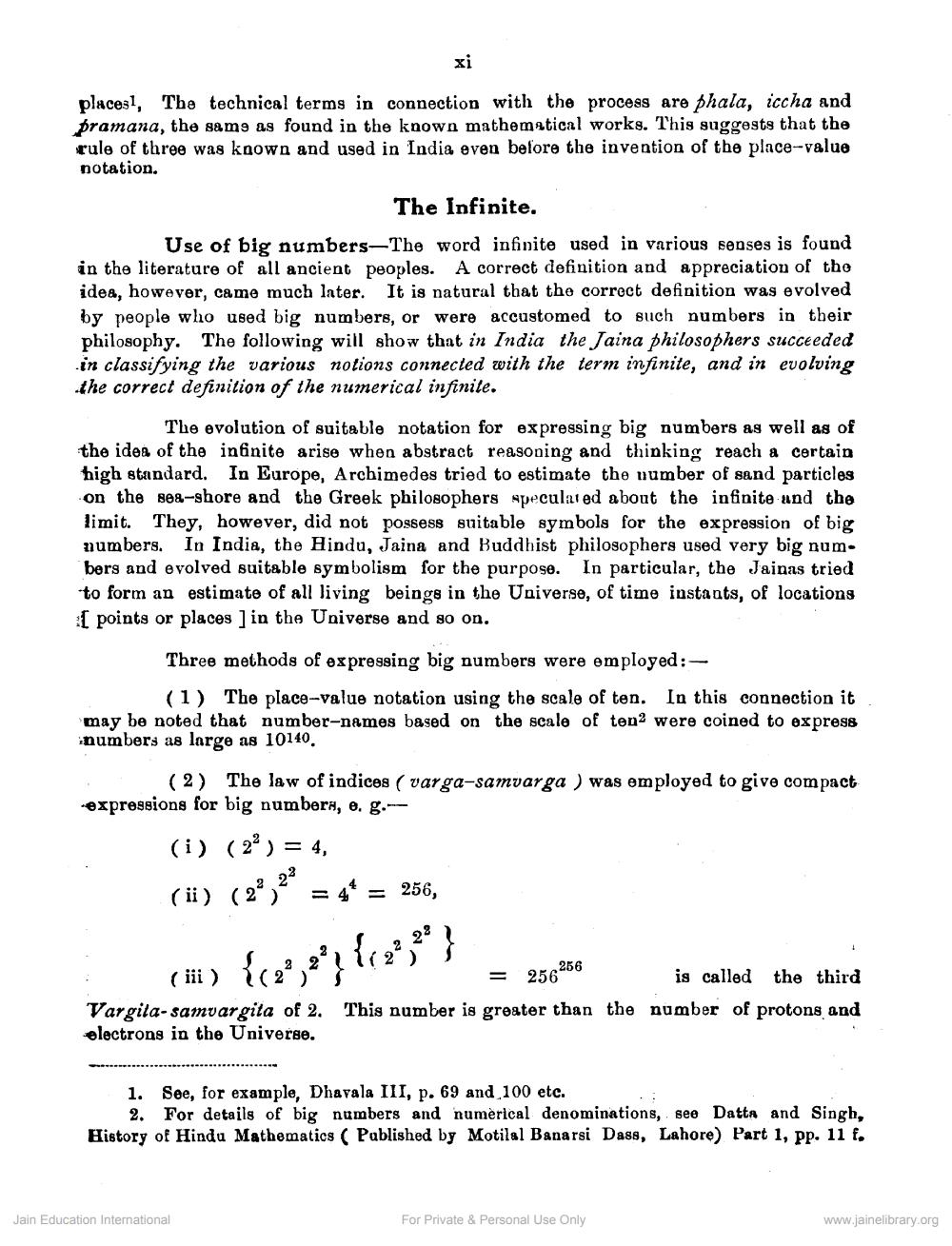________________
places, The technical terms in connection with the process are phala, iccha and pramana, the same as found in the known mathematical works. This suggests that the rule of three was known and used in India even before the invention of the place-value notation.
The Infinite.
Use of big numbers-The word infinite used in various senses is found in the literature of all ancient peoples. A correct definition and appreciation of the idea, however, came much later. It is natural that the correct definition was evolved by people who used big numbers, or were accustomed to such numbers in their philosophy. The following will show that in India the Jaina philosophers succeeded in classifying the various notions connected with the term infinite, and in evolving the correct definition of the numerical infinite.
The evolution of suitable notation for expressing big numbers as well as of the idea of the infinite arise when abstract reasoning and thinking reach a certain high standard. In Europe, Archimedes tried to estimate the number of sand particles on the sea-shore and the Greek philosophers speculated about the infinite and the limit. They, however, did not possess suitable symbols for the expression of big numbers. In India, the Hindu, Jaina and Buddhist philosophers used very big numbers and evolved suitable symbolism for the purpose. In particular, the Jainas tried to form an estimate of all living beings in the Universe, of time instants, of locations I points or places ] in the Universe and so on.
Three methods of expressing big numbers were employed:
(1) The place-value notation using the scale of ten. In this connection it may be noted that number-names based on the scale of ten2 were coined to express numbers as large as 10140.
xi
(2) The law of indices (varga-samvarga) was employed to give compact -expressions for big numbers, e. g.
(1) (2") = 4, (i) (2,29
= 4 = 256,
22
{(2) **}
2.2
Jain Education International
{(2
256 256
(iii)
is called the third
Vargila-samvargita of 2. This number is greater than the number of protons and electrons in the Universe.
1. See, for example, Dhavala III, p. 69 and 100 etc.
2. For details of big numbers and numèrical denominations, see Datta and Singh, History of Hindu Mathematics ( Published by Motilal Banarsi Dass, Lahore) Part 1, pp. 11 f.
For Private & Personal Use Only
www.jainelibrary.org




